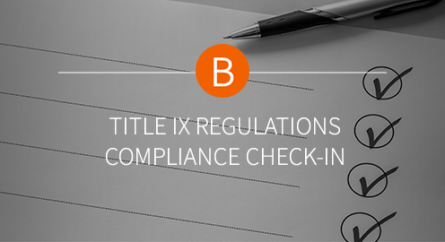Client Alert: The Supreme Court’s Chevron Decision Impacts Employers, Particularly in Healthcare and Higher Education Industries
On Friday, June 28, the Supreme Court struck down 40 years of legal precedent by invalidating the doctrine of Chevron deference in its decision in Loper Bright Enterprises v. Raimondo. The Supreme Court’s decision will reverberate through the federal government, shifting power from federal agencies in the executive branch to the judiciary and presenting uncertainty for employers in highly regulated industries, such as healthcare and higher education.
Established by the Supreme Court in its 1984 decision in Chevron U.S.A. v. Natural Resources Defense Council, Inc., the Chevron doctrine required courts to defer to federal agencies’ “reasonable” interpretations of law when making decisions in cases related to the agencies’ regulatory purview. This meant that the executive branch’s interpretations of legal requirements generally controlled, regardless of whether the court hearing a particular issue agreed.
As employers, higher education institutions, and healthcare organizations are well aware, the compliance requirements of a particular statute – for example, Title IX or the Food Drug and Cosmetics Act – are often established not by the statute itself, but by regulations enacted by federal agencies, such as the Equal Employment Opportunity Commission, the Department of Education, or the Food and Drug Administration. Agency regulations are often more detailed than the underlying statute, and changes to regulations often impose significant compliance burdens on regulated businesses or institutions. Prior to Friday’s Supreme Court decision, Chevron deference meant that federal agency regulations – which amounted to their interpretation of a statute – generally had the force of law.
With the eradication of Chevron deference, courts are no longer required to honor a federal agency’s rulemaking as a valid interpretation of the law and courts may overrule the agency without first finding that it has acted unreasonably. This means that federal courts will now have more power to decide how to measure compliance with a particular statute, and federal agencies will have less. Because federal agencies are part of the executive branch, the impact of this change is likely to be most pronounced in jurisdictions where the judges in the federal courts are of a different political persuasion than the agencies. For example, now conservative lower courts may be more likely to disagree with the Democratic administration’s interpretation of the laws.
The Supreme Court’s decision creates uncertainty for regulated entities across the country, particularly employers, higher education institutions, and health care organizations. These entities now have less guidance on how to comply with the federal laws to which they are subject.
How eager federal courts will be to deviate from federal agency interpretations remains to be seen. Some commenters have predicted a state of chaos, while others have downplayed the effect, noting that courts sometimes did not adhere to Chevron deference across the board even prior to Friday’s decision. Heavily-regulated industries such as healthcare and higher education may be affected first, and most significantly, although all employers and industries may ultimately be impacted. Below are some examples of the regulations that Friday’s ruling puts at risk:
Employers
Employment law is heavily shaped by federal regulations. Federal employment agencies have been particularly active in the past year, releasing a slew of regulations on topics ranging from pregnancy protections to restrictive covenants. Many of these regulations, including the Department of Labor’s independent contractor rule and Fair Labor Standards Act overtime rule, the Federal Trade Commission’s rule banning non-competes, the EEOC’s Pregnant Workers Fairness Act regulations, and the National Labor Relations Act’s joint-employer rule, face active legal challenges. The elimination of Chevron deference makes it more likely that these challenges will be successful and more frequent, bringing uncertainty to the federal government’s regulation of employers throughout the United States.
Higher Education
In higher education, the federal regulatory landscape is dominated by the Department of Education, particular in the areas of higher education policy, civil rights, and federal financial aid.
The newly enacted Title IX regulations, effective August 1, 2024, are already subject to legal challenges based on their protections for transgender students and the elimination of Chevron deference makes it more likely that these regulations will be struck down in the jurisdictions where preliminary injunctions are currently in place: Virginia, Kentucky, Tennessee, Indiana, Ohio, West Virginia, Louisiana, Mississippi, Montana, and Idaho so far. Challenges to other federal civil rights regulations may be more likely and the Supreme Court’s decision creates uncertainty around how those regulations will be applied to higher education in the future.
The Biden Administration’s focus on student loan forgiveness measures, including Borrower Defense claims, may also be at risk following the Supreme Court’s decision. In particular, the decision has already been hailed by for-profit education institutions who are likely to challenge borrower defense forgiveness actions in conservative courts.
Healthcare
In healthcare, the federal regulatory landscape is dominated by the Department of Health and Human Services (HHS), particularly with regard to the Medicare program. The Supreme Court’s decision means that providers may be more likely to challenge HHS regulations on topics like Medicare reimbursement. Such challenges will rely upon general statutory language, such as the Social Security Act provision that only items and services qualify for Medicare coverage if they are “reasonable and necessary for the diagnosis or treatment of illness or injury.”
Similarly, the Food and Drug Administration enforces the Food, Drug and Cosmetics Act, which prohibits the introduction into interstate commerce of any drug or device that is “adulterated or misbranded.” A vast machinery of regulation is based on this statutory mandate focused on good manufacturing practices, and the safety, quality and purity of a huge range of drugs and devices – all which may now be more easily challenged by drug manufacturers, marketers, and other businesses.
Client Tip
Lack of deference due to agency rulemaking may not result in immediate changes to your compliance scheme, but it may affect the way your business or institution assesses compliance risks, and may result in changes in compliance requirements based on judicial decisions. Contact your Bowditch attorney to stay fully up to date on risk management and compliance requirements in your jurisdiction.
Categorized: Client Alerts, Publications
Tagged In: compliance, Chevron, reasonable interpretations of law, federal agencies






